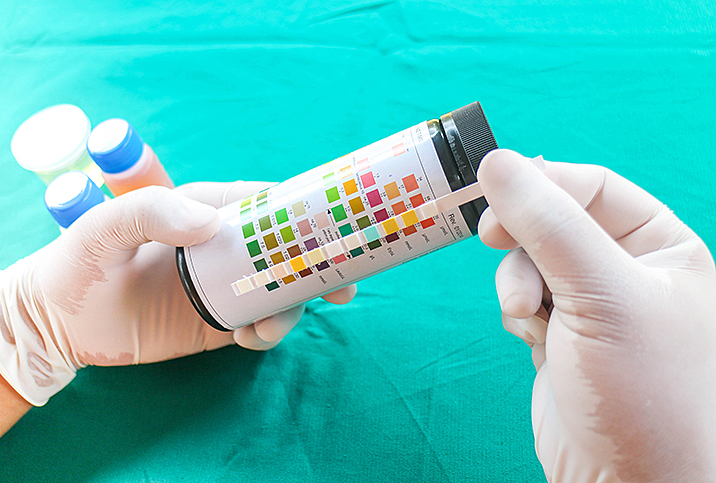Can You Get a Yeast Infection From Stress?

Stress can wreak havoc across the brain and body, including your reproductive system. Not only are you less likely to be "in the mood" when you're overwhelmed, but you also may be more susceptible to infections, including bacterial vaginosis (BV) and yeast infections.
As someone who has lived with generalized anxiety disorder and recurrent yeast infections for decades, understanding the connection between brain and body was an important stepping-stone to saving my sanity.
If you're one of the unlucky ones who suffer from recurrent yeast infections due to stress, it may be time to figure out how to increase your zen.
What is the link between stress and mental health?
Stress produces the hormones cortisol and adrenaline. These hormones initiate the evolutionary "fight or flight" response, which funnels resources to the brain and muscles to help us evade danger. It's instrumental in certain situations, such as escaping from a burning building, but not so much in others.
"Your brain does not know if you are running from a bear or have a deadline at work," said Tara Scott, M.D., an OB-GYN in Fairlawn, Ohio. "The physiologic response is the same: make you more alert and prepare your body to run."
If stress persists, consistently high cortisol levels can contribute to various conditions, including hormone imbalances, chronic inflammation and reproductive health issues.
"When the body produces too much cortisol over a long period, this starts a signaling cascade in the brain that ultimately leads to the pituitary gland failing to produce adequate levels of FSH [follicle-stimulating hormone] and LH [luteinizing hormone]," said Jillian Boroniec, M.D., a Chicago-based telemedicine physician at Nurx, an online healthcare provider.
The hormonal signaling of FSH and LH on the ovaries throughout the month leads to estrogen and progesterone production from the ovaries, Boroniec explained. This allows for a "normal" menstrual cycle.
"When this is disrupted, you may notice missed periods, irregular periods, spotting between periods, mood changes and others," Boroniec said.
In addition to a disrupted menstrual cycle, chronic stress can inhibit estrogen metabolism and decrease blood flow to the vagina, diminishing natural lubrication and contributing to vaginal dryness. Stress can also lower libido, cause pelvic floor tightening and irregular discharge, and increase the risk of infections. In the long term, it can affect fertility as well, Boroniec said. It's important to discover new ways of managing stress.
What's the link between stress and higher risk of infection?
Stress and its physiological effects could impact the immune system and the vaginal microbiome, an ecosystem consisting of millions of mostly beneficial bacteria, said Amy Roskin, M.D., J.D., a Florida-based OB-GYN and chief medical officer of Seven Starling, a women's digital health platform.
A disruption in bacterial equilibrium means fewer good bacteria to keep the bad ones in check, messing with your vaginal pH and creating an environment in which infections are more likely to develop.
"When there is an overgrowth of certain types of bacteria, usually Gardnerella, you can get bacterial vaginosis, which causes an inflammation of the vagina and a change in vaginal discharge," Scott said.
Yeast is naturally present in the vaginal microbiome, and beneficial bacteria usually restrict its growth. But when their numbers deplete, yeast can proliferate.
Estrogen plays a key role in supporting protective bacteria, such as lactobacilli, and vaginal acidity (pH), which together stave off infections. But increased levels of stress hormones, such as cortisol and norepinephrine, can curtail estrogen function.
Other factors that can disturb the vaginal microbiome and increase infection risk include antibiotic use, wearing sweaty or wet clothing, douching and conditions affecting glucose metabolism.
It's vital in all aspects of your life to learn how to deal with stress.
When should I see a doctor?
Mild infections might resolve on their own within a few days. If you have persistent, frequent or recurring symptoms, or pelvic pain or a fever, it's important to contact your doctor right away so you can get the correct diagnosis and treatment, Roskin said.
"It can be hard to tell what the cause is just from the symptoms, and testing can be helpful," Roskin said. "For example, sometimes symptoms that include vaginal irritation and a foul-smelling discharge could be any one of several different types of infections, sexually transmitted or not, that have different treatments."
Yeast infections and bacterial vaginosis are easily treatable in the early stages, with treatment usually consisting of a prescription antifungal or antibiotic. Not addressing these conditions can lead to a host of other issues. In addition to intense discomfort, issues can include extreme swelling and irritation in the vulvar and vaginal tissues, which may lead to small cuts, blisters and severe pain. With bacterial vaginosis, the implications can be even more significant.
"It's good to treat BV quickly as BV can actually increase your chance of getting a sexually transmitted infection," Boroniec said. "In addition, untreated BV may lead to pelvic inflammatory disease, which is when the infection has spread into the uterus or fallopian tubes. PID can lead to scarring and difficulties with fertility in the future."
How to care for your vagina during times of stress
Diminishing or reducing stress can yield multiple benefits, including supporting a healthy reproductive system. Even if stress is unavoidable, there are several ways to reduce the risk of BV or a yeast infection from stress, including practicing good hygiene and eating a healthy, primarily plant-based diet with probiotics.
"It's important to be kind to yourself and conscientious about self-care. Mindfulness, stress management techniques, adequate sleep and staying well hydrated can help maintain your overall health and vaginal health," Roskin said. "In addition, many people find that probiotics, preferably directly from food sources, can help maintain optimal vaginal bacterial balance."


















